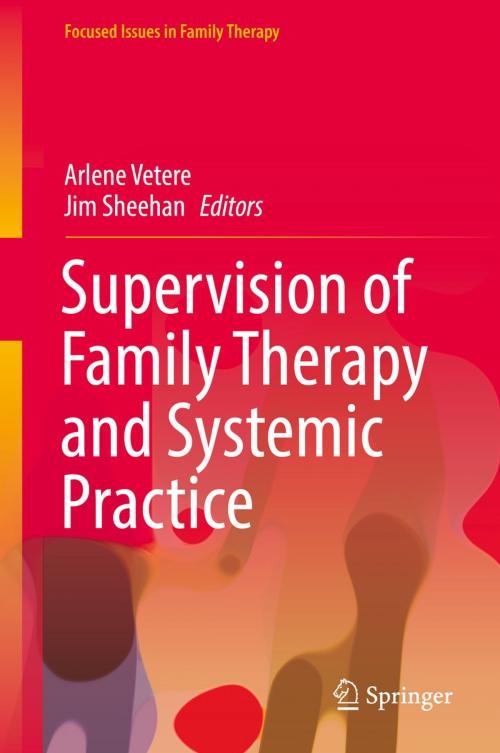Supervision of Family Therapy and Systemic Practice
Nonfiction, Social & Cultural Studies, Social Science, Social Work, Health & Well Being, Psychology, Psychotherapy, Medical| Author: | ISBN: | 9783319685915 | |
| Publisher: | Springer International Publishing | Publication: | December 4, 2017 |
| Imprint: | Springer | Language: | English |
| Author: | |
| ISBN: | 9783319685915 |
| Publisher: | Springer International Publishing |
| Publication: | December 4, 2017 |
| Imprint: | Springer |
| Language: | English |
This much-needed volume examines the process and practice of supervision in family therapy, with special emphasis on systemic practice. Expert trainers and supervisors from diverse disciplines take a systemic tour of the relationships between supervisor, therapist, and client, analyzing the core skills of effective, meaningful supervision—including questioning, listening, and reflecting—and their impact on therapy. These skills and others are applied to supervising therapy with individuals, couples, and families in areas including substance abuse, domestic violence, and research settings. Throughout the book, contributors share self-care strategies, so supervisors can stay engaged and creative, meet the many challenges entailed in their work, and avoid burnout.
Among the topics covered:
-
The resonance from personal life in family therapy supervision.
-
Creating a dialogical culture for supervision.
-
The supervisor’s power and moments of learning.
-
Supervision and domestic violence: therapy with individuals, couples, and families.
-
Systemic supervision with groups in child protection contexts.
-
When the supervision process falters and breaks down: pathways to repair.
The highly practical information in Supervision of Family Therapy and Systemic Practice is adaptable by readers to their particular supervisory or training needs. Novice and veteran mental health, social care, and social work practitioners and psychotherapists, will find it a substantial resource.
This much-needed volume examines the process and practice of supervision in family therapy, with special emphasis on systemic practice. Expert trainers and supervisors from diverse disciplines take a systemic tour of the relationships between supervisor, therapist, and client, analyzing the core skills of effective, meaningful supervision—including questioning, listening, and reflecting—and their impact on therapy. These skills and others are applied to supervising therapy with individuals, couples, and families in areas including substance abuse, domestic violence, and research settings. Throughout the book, contributors share self-care strategies, so supervisors can stay engaged and creative, meet the many challenges entailed in their work, and avoid burnout.
Among the topics covered:
-
The resonance from personal life in family therapy supervision.
-
Creating a dialogical culture for supervision.
-
The supervisor’s power and moments of learning.
-
Supervision and domestic violence: therapy with individuals, couples, and families.
-
Systemic supervision with groups in child protection contexts.
-
When the supervision process falters and breaks down: pathways to repair.
The highly practical information in Supervision of Family Therapy and Systemic Practice is adaptable by readers to their particular supervisory or training needs. Novice and veteran mental health, social care, and social work practitioners and psychotherapists, will find it a substantial resource.















